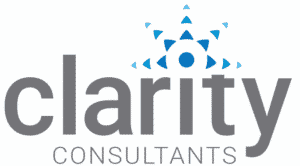Clarity Learning & Development Blog
Perspectives on the continuous evolution of workplace training, learning and leadership development.

Benefits of Inquiry-Based Learning Mixed With Traditional Learning Methods
Various learning methods all have their uses and validity in certain training situations. Inevitably, different individuals learn successfully in different ways. But traditional learning methods, such as lecture and literature based learning, return time and again as some of the most commonly used instructional strategies across all disciplines.
Read More »
September 13, 2016

How Effective Is Your Learning Leadership?
What makes a learning and development leader effective? It’s the ability to understand and deliver the needs of both instructors and learners—in other words, to manage the development process while expanding the capacity for learning.
Read More »
September 8, 2016

Mentoring Best Practices: Keep and Tweak The Transfer of Knowledge
iStock_86366583_MEDIUM.jpgApprenticeship and mentorship programs can be extremely effective training tools. Many people in all lines of work learn best and most efficiently through shared experiences and hands-on learning. If your business has not invested in a program where younger employees are able to benefit from the experience and real-world knowledge of veteran employees, chances are that you are missing out on a real opportunity.
Read More »
September 7, 2016

Using Classical Conditioning in eLearning for Success
About a hundred years ago, psychologist John Watson did something he wouldn’t be able to get away with today: he purposefully created a fear of rats in a baby named Albert.
Read More »
September 1, 2016

How to Enhance the Productivity of Millennials in the Workplace
A certain amount of stigma is associated with the millennial generation that is now entering the workforce for the first time. Wisecracks about participation trophies and social media obsessions have negatively influenced the popular impression of the character of millennials. Older generations have expressed doubts regarding their attention span, work ethic, and sense of responsibility.
Read More »
August 30, 2016

Big Data in eLearning: 4 Reasons it’s a Big Deal
Nearly every list of eLearning trends for the coming year forecasts the rise of “big data.” But few describe what they mean by this, or how it relates to online learning.
Read More »
August 25, 2016

Why Sprint Tactics Could Help Your Projects to the Finish Line
Workplace inefficiencies, countless emails, meetings and everyday distractions can keep an office from reaching its productive potential. Fortunately, Sprint tactics provide a way to overcome these obstacles.
Read More »
August 23, 2016

70:20:10 Model: Credible or Controversial?
In recent years, L&D blogs have been humming with posts about the 70:20:10 model for learning and development — which, despite the massive amounts of attention it gets, garners mostly mixed reviews. Some L&D professionals swear by it, while others swear it’s nonsense.
Read More »
August 18, 2016

3 Ways to Foster an Open Workplace Culture
Our world is more connected than ever. As a result of our latest technology, work is no longer confined to an office. We can email clients while in line for coffee and approve memos on the train. Promoting and continuing this culture of connectedness is now more important than ever in the workplace. Marc de Grandpre, Senior VP of marketing at KIND Healthy Snacks, asserts in a Forbes interview, “It is absolutely critical to have both an authentic and transparent work environment” in order to allow “brilliant ideas” to flow.
Read More »
August 16, 2016

Developing a First-Class QA Process for eLearning
What’s the most rewarding part of developing an online course? If you said the review process—who are we kidding, we know you didn’t.
The quality assurance (QA) phase of developing an online course is one of the most important parts of the process, even if it isn’t the most fun. But it doesn’t have to be painful, either.
Read More »
August 11, 2016

5 Ways to Deal with Stage Fright in the Classroom
If the thought of teaching in a live classroom makes you break out in a sweat, you’re not alone. Plenty of instructors feel anxious about their performance in the classroom and fear the potential symptoms—shaky voice, trembling hands—that might impact their ability to teach effectively.
Read More »
August 4, 2016

7 Tips for Overcoming a Language Barrier in the Workplace
In today’s increasingly diverse society, it is almost guaranteed that there will be some degree of cultural discrepancy in the workplace. These differences can pose problems, especially when it comes to clear, accurate communication with those who don’t speak the same language. Because communication is crucial to the success of an office or workplace, it is important to have some techniques on hand to use when things get a little hard to convey.
Read More »
August 2, 2016
Categories
Contact Clarity
For over 30 years, we’ve managed projects touching every element of learning and talent development.
